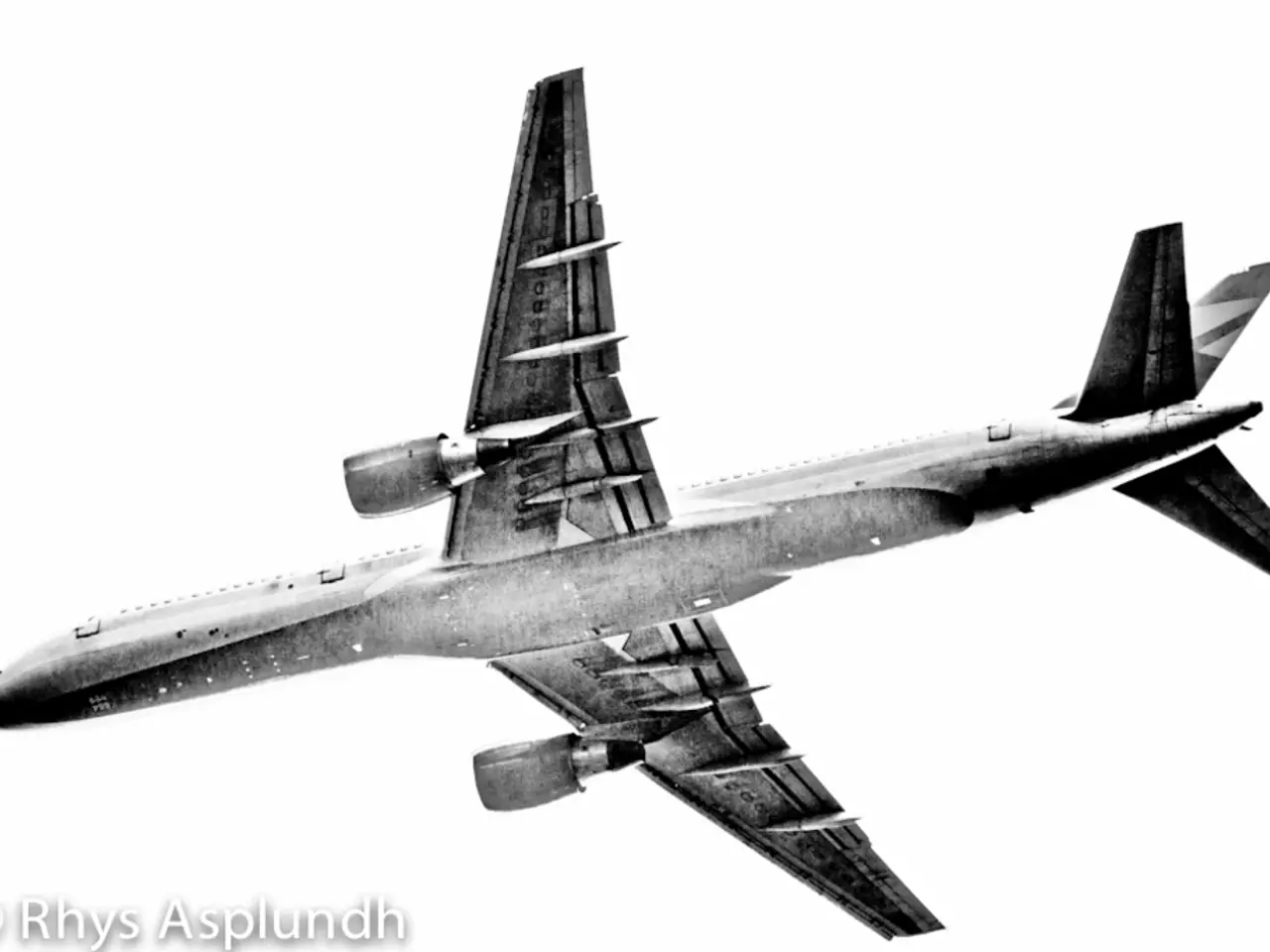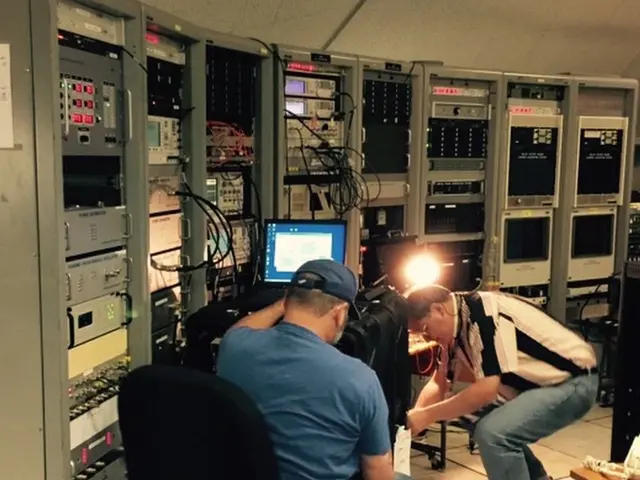Space travel company Virgin Galactic's innovative Delta-class plane may take flight as early as autumn 2026.
The space industry is abuzz with anticipation as Virgin Galactic, the pioneering space travel company, continues to make strides in the development of its new Delta Class suborbital spaceplane.
The Delta Class, a next-generation vehicle in Virgin Galactic's spaceplane family, is set to revolutionise suborbital space tourism, following in the footsteps of SpaceShipTwo. The ongoing work on Delta Class systems and structures includes the wing assembly, scheduled for completion during the fourth quarter of 2025.
During the company's second quarter 2025 business conference call on Aug. 6, the construction of the Delta Class SpaceShip was reviewed. The fuselage construction is expected to be completed late this year or early 2026.
Mike Moses, president of Spaceline, oversees the commercial flight program for Virgin Galactic. The Delta Class ships are designed to fly eight missions per month, marking a significant increase in operational efficiency compared to their predecessors.
Final assembly of the Delta Class ships will take place at Virgin Galactic's Delta facility near Phoenix, Arizona. The novel "feather" assembly of the Delta Class plane, utilized during reentry, makes it more stable, ensuring a smoother and safer journey for passengers.
The monthly payload or customer capacity of the Delta Class ships is twelve times that of the original VSS Unity, a testament to the advancements in space travel technology.
Virgin Galactic's collaboration with Lawrence Livermore National Laboratory extends to a feasibility study to use its mothership aircraft as a carrier platform for launching other craft at high altitude. The exact details of this collaboration in relation to the Delta Class are not widely publicized.
Progress in this ambitious project is highlighted in a recent video, showcasing development milestones for the Delta Class SpaceShip program. The video is available for viewing.
The Delta Class planes are expected to commence research and private astronaut flights in the fall of 2026, marking the beginning of a new era in space tourism. The CEO, Michael Colglazier, reported progress on SpaceShips and emphasised a strong financial balance sheet for executing the business model.
Virgin Galactic's next-generation vehicles aim to bring humans to space at an unprecedented frequency, making space travel more accessible than ever before. The company is currently in the development phase of the Delta Class suborbital planes, with commercial service expected in 2026.
In addition, progress in a feasibility study to potentially develop a second spaceport in Italy was mentioned in the business update. The CEO confirmed commercial service for 2026, with both research and private astronaut flights expected in the fall of next year.
Stay tuned for more updates on the Delta Class project, collaborations, and operational plans as we continue to monitor news and official Virgin Galactic releases.
The upcoming Delta Class SpaceShip, a product of Virgin Galactic's technological advancements, is poised to catapult suborbital space tourism, following the footsteps of SpaceShipTwo. With a monthly payload capacity twelve times greater than the original VSS Unity, these next-generation vehicles intend to democratize space travel by offering increased operational efficiency and ensuring a safer journey, thanks to innovative features like the "feather" assembly during reentry.




